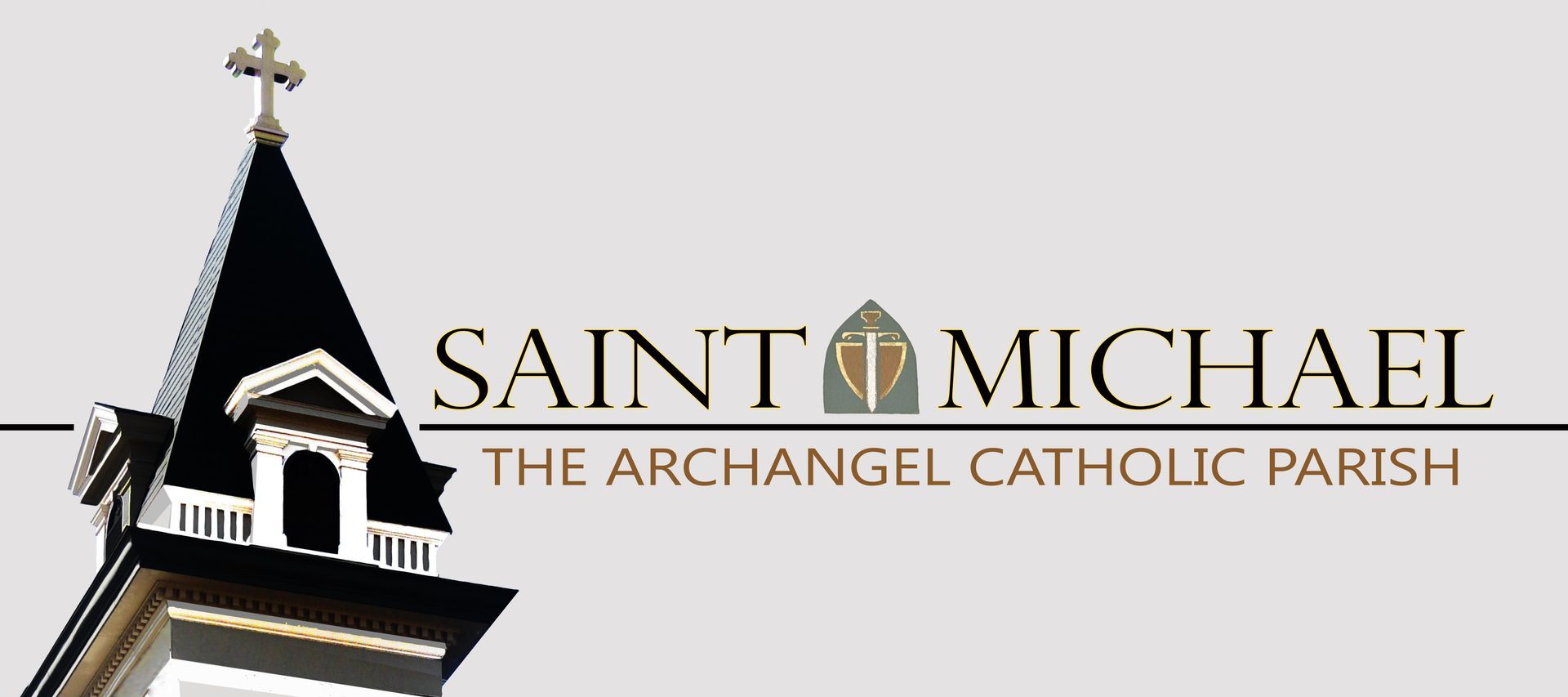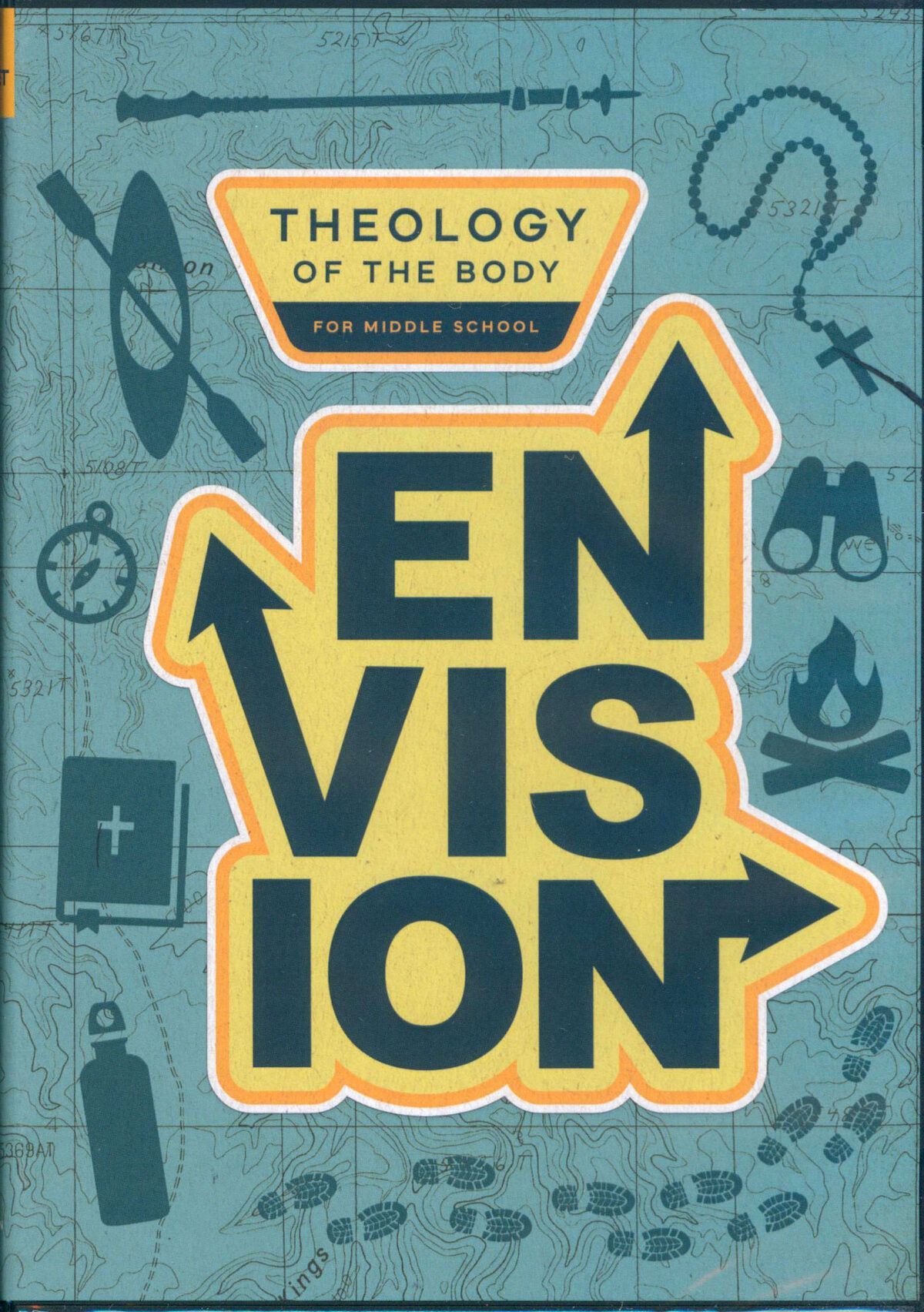Confirmation
Our Confirmation curriculum is covered over the course of a 2-year cycle:
- Year One: We work on content covered in Envision: Theology of the Body for Middle School (publisher: Ascension Press)
- Year Two: We work on Confirmation-specific content covered in the required diocesan Confirmation workbook (publisher: OSV).
Students must complete 6th grade in Religious Ed. before beginning Confirmation prep.
Congratulations to Our 2025 Confirmed!
Confirmation Explained
adapted from: http://www.aboutcatholics.com/beliefs/catholic-confirmation-explained/
Confirmation is a sacrament of initiation which completes baptism by being marked with the seal of the Holy Spirit.
Who can receive Confirmation?
In the Catholic Church, anyone that has been baptized properly can and should be confirmed.
What is Catholic Confirmation?
Confirmation is a Sacrament in the Catholic Church in which the one who is confirmed (confirmandi) receives the gifts of the Holy Spirit through the imposition of hand and anointing with oils by the bishop. It’s considered a sacrament of initiation which means that it brings you deeper into communion with the Church.
Who administers Confirmation?
Bishops are the original ministers of Confirmation.
“Bishops are the successors of the apostles. They have received the fullness of the sacrament of Holy Orders. The administration of this sacrament by them demonstrates clearly that its effects is to unite those who receive it more closely to the Church, her apostolic origins, and her mission of bearing witness to Christ.” (Catechism of the Catholic Church, paragraph 1313)
In the west, most churches have the Bishop come and visit the local parish to confirm an entire class (age group) of students who spent the year preparing for confirmation.
How many times can one be Confirmed?
“Like Baptism which it completes, Confirmation is given only once, for it too imprints on the soul an indelible spiritual mark, the ‘character,’ which is the sign that Jesus Christ has marked a Christian with the seal of his Spirit by clothing him with power from on high so that he may be his witness.” (Catechism of the Catholic Church 1304)
In other words, just once! It’s a permanent thing that is fully completed and doesn’t expire.
What is the matter and form of Confirmation?
Catholic Confirmation is performed with the ordinary minister extending his hand over the one to be confirmed and anointing his/her head with the oil of chrism saying, “be sealed with the Holy Spirit.” The oil of chrism is consecrated by the bishop at the Chrism Mass on Holy Thursday and is reserved for special things like Baptism, Confirmation, Holy Orders, blessing of tower bells, consecration of churches, altars, chalices and patens.
What are the effects of Confirmation?
In short, it is the full outpouring of the Holy Spirit as once granted to the apostles on the day of Pentecost. Confirmation brings Catholics a deepening of baptismal grace and unites us more firmly to Christ. It increases the gifts of the Holy Spirit and leaves an indelible mark on the soul just like baptism.
What are the seven gifts of the Holy Spirit?
The seven gifts of the Holy Spirit received through Confirmation are:
Wisdom, Understanding, Knowledge, Fortitude or Courage, Counsel, Piety or Love, and Fear of the Lord.
Where is this sacrament found in Scripture?
Anointing with oil is an ancient Biblical tradition originating in the old testament with the Jewish people. The Jews had a messiah and it was usually their king at the time, howver they were also awaiting a greater messiah, one that would deliver them and raise them up. This messiah happened to be Jesus. The sign of the Messiah was that he was royal and messiahs were put in their position by being anointed with oil and an appointment from God. This tradition carried on in Christianity with the teaching of the sharing in Christ’s messiahship and his royal priesthood. In fact, the first example of Catholic Confirmation can be found in Acts 8:14-17.
What does a Confirmation sponsor do?
Confirmation sponsors “bring the candidates to receive the sacrament, present them to the minister for anointing, and will later help them fulfill their baptismal promises faithfully under the influence of the Holy Spirit whom they have received.” (Rite of Confirmation, 5)
There are a few requirements to be a Confirmation sponsor. They must be spiritually fit to take on their responsibility which is evidenced by
- sufficient maturity to fulfill their function;
- membership in the Catholic Church and having received all of the sacraments of initiation (baptism, confirmation, and eucharist);
- freedom from any impediment of law to fulfilling the office of sponsor. This means that a sponsor must be in good standing with the Church (no public dissent, believes in the teachings of the Church, and in full communion with the Church).
Since a sponsor has such a significant role to play in the development of confirmation candidate it is important that this person be one who is a living example of faith, one whose actions reflect the actions of Jesus. A confirmation sponsor offers support and encouragement during the confirmation preparation process.
Confirmation sponsors need not be of the same gender as the candidate nor do they need to be from the same family. As long as they fulfill the requirements above it can really be anyone.
How do I choose a sponsor?
Think carefully about someone you know who meets the criteria above. The Church encourages us to consider our godparents as sponsors for confirmation. Confirmation’s strong connection to baptism makes one’s godparent to be a natural choice if this person meets the requirements above. If you do not know someone who meets the criteria above or they are not able to sponsor you then discuss your options with the confirmation coordinator at your parish to see if they can find someone suitable. Often members of the parish will volunteer for those who are unable to find a suitable sponsor.
The sacrament of confirmation is the way for a Catholic to attain full membership in the Catholic Church. It is a beautiful sacrament that will instill God’s grace within you to strengthen and sustain you in your journey of faith.
God's plan for humanity is stamped right into our bodies!
*The sponsor must fill out a sponsor from and return it to the parish office or Mrs. Swygart (dre@stmichaelwaterloo.com). This is to ensure the sponsor is a practicing Catholic and has completed the three sacraments of initiation: Baptism, Eucharist, and Confirmation.

